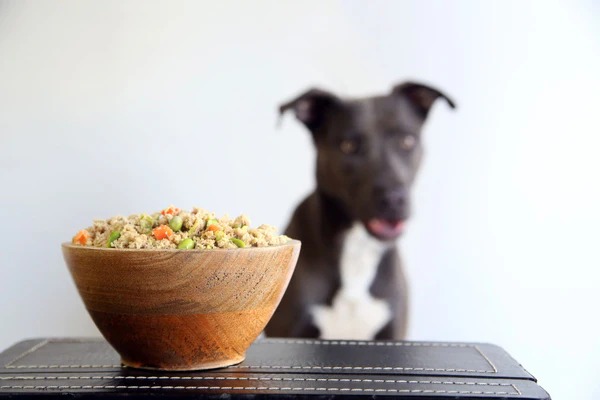When it comes to feeding your beloved pet, understanding which human foods are safe and which are harmful is crucial for their health and happiness. Here is an easy-to-understand guide for pet parents on safe human foods for pets and foods to avoid, focusing mainly on dogs and cats.
-
Safe Human Foods Your Pet Can Eat
Pets can sometimes enjoy a variety of human foods as occasional treats, supplements, or snacks. These can provide beneficial nutrients and variety, but moderation and caution are key.
Vegetables and Fruits :
- Carrots: Both dogs and cats can safely eat carrots. They are low-calorie, rich in fiber, and packed with beta-carotene, which benefits vision and immune health. Carrots also help clean teeth with their crunchy texture. Cut them into small pieces to prevent choking.
- Apples: Dogs can enjoy apple slices (without seeds and core), which are rich in vitamins A and C and fiber. Avoid the seeds as they contain cyanide.
- Bananas: A great source of potassium and vitamins, but because of their sugar content, feed in moderation.
- Blueberries: Full of antioxidants, they are a healthy, bite-sized treat for dogs.
- Green beans: Low in calories and a good source of fiber and vitamin C. They can fill up your dog without adding many calories.
- Pumpkin: Cooked pumpkin is especially good for digestion and is low in calories and fat.
- Watermelon and Cantaloupe: Both are hydrating and safe if seeds, rind, and skin are removed.
- Bell peppers: These are nutrient-rich and crunchy but should be introduced slowly to avoid digestive upset.
Proteins :
- Cooked chicken, turkey, or beef: These meats without seasoning are excellent protein sources for pets. They are good for dogs and cats when cooked thoroughly and given plain.
- Cooked fish: Salmon, tuna, and shrimp are good sources of omega-3 fatty acids and vitamins, supporting brain, eye, and heart health. Always fully cook fish to avoid harmful parasites or bacteria.
- Eggs: Cooked eggs provide a high-quality protein source and essential vitamins like vitamin D, selenium, and riboflavin.
Other Treats :
- Peanut butter: Unsalted, unsweetened versions without xylitol are a favorite treat for dogs. They provide healthy fats, protein, and vitamins but should be given sparingly.
- Plain popcorn: Served without salt, butter, or sugar, plain popcorn can be a fun and healthy treat rich in minerals.
-
Foods to Avoid Feeding Your Pet
Certain human foods can be toxic or harmful to pets and should never be given.
- Chocolate and caffeine: Contain substances that can be fatal to pets.
- Xylitol: An artificial sweetener found in sugar-free products, xylitol causes rapid insulin release leading to hypoglycemia and liver failure in dogs.
- Grapes and raisins: Even small amounts can cause kidney failure.
- Onions, garlic, chives: These can damage red blood cells leading to anemia.
- Alcohol: Can cause vomiting, diarrhea, breathing issues, coma, and death.
- Macadamia nuts: Toxic to dogs, causing weakness, tremors, and hyperthermia.
- Raw meat, eggs, and bones: Can harbor bacteria like Salmonella and E. coli; bones can also cause choking or internal injury.
- Avocado: Contains persin, which is toxic to several animals.
- Yeast dough: Expands in the stomach causing bloating and produces alcohol leading to poisoning.
- Certain fruit seeds and pits (like apple, cherry, apricot): Contain cyanide compounds that are harmful.
- Excess dairy: Many pets are lactose intolerant and may experience diarrhea or upset stomach.
-
Important Tips for Feeding Human Food to Pets
- Always introduce new human foods slowly and in small amounts to watch for any adverse reactions.
- Avoid seasoning, salt, sugar, and additives when preparing foods for pets.
- Feed human food treats in moderation to prevent nutritional imbalances or obesity.
- Never replace a complete pet diet with human foods. Pets need balanced nutrients that are best provided by formulated pet food.
- Remove all seeds, pits, skins, and bones that could cause choking or digestive blockages.
- Consult your veterinarian before adding new foods to your pet’s diet, especially if your pet has health conditions or special dietary needs.
-
Conclusion
Many common fruits, vegetables, and proteins we eat can be safe and even beneficial for our pets when given properly and in moderation. Carrots, apples, blueberries, cooked lean meats, and pumpkin are just a few examples of healthy human foods pets often enjoy. However, it is crucial to avoid toxic foods such as chocolate, grapes, onions, and anything containing xylitol. Responsible sharing of human foods can be a delightful way to bond with your pet while contributing to their dietary variety and nutrition, but this must be done with knowledgeable care and veterinarian guidance to keep your furry friend safe and healthy.
Share This Post

